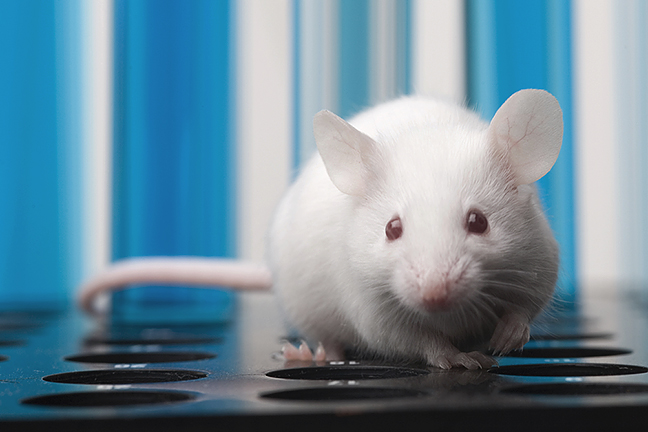Unveiling the Unseen – The Heart’s Influence on Mouse Anxiety In the vast landscape of scientific research, certain connections lie concealed, waiting for the curious minds to uncover them. Today, we are on a quest to unearth one such concealed link – the relationship between the heart and anxiety in mice. While anxiety is typically
Unveiling the Unseen – The Heart’s Influence on Mouse Anxiety
In the vast landscape of scientific research, certain connections lie concealed, waiting for the curious minds to uncover them. Today, we are on a quest to unearth one such concealed link – the relationship between the heart and anxiety in mice. While anxiety is typically associated with the complexities of the mind, recent research has brought to light a surprising revelation: the heart, with its rhythmic beats, may play a more significant role in anxiety than we ever imagined, even in the world of mice.
Mouse Anxiety: Beyond Psychology
When we think of anxiety, our minds naturally gravitate towards the intricate web of thoughts and emotions that shape our mental landscape. However, recent scientific exploration has led us down a different path, one that takes us beyond the mind, into the realm of the heart, and even further – into the world of mice.
Anxiety, a prevalent psychological condition, is usually viewed through the lens of neurotransmitters, hormones, and neural pathways. While this perspective has yielded valuable insights, it might only scratch the surface of a more intricate story.

Image by: https://a-z-animals.com/blog/10-mice-that-are-cute/
The Heart-Brain Connection
To fathom the connection between the heart and anxiety, we must first grasp the intricate interplay between these two vital organs. The heart, often perceived as a mere pump, is far more than that; it serves as an information center, constantly communicating with the brain.
At the heart of this connection lies the concept of heart rate variability (HRV), which refers to the variation in time between successive heartbeats. A rhythmic HRV reflects a balanced and harmonious state of being. In contrast, an erratic HRV can signal turmoil within the body and mind, potentially leading to increased anxiety levels.
This phenomenon isn’t exclusive to humans; it extends to our fellow inhabitants of the natural world, including mice. The heart’s rhythm, in its simplicity, holds the key to understanding anxiety in ways we’ve only begun to explore.
A Pioneering Study: Heart-Anxiety Link
In a pioneering study conducted by a dedicated team of scientists, the elusive connection between the heart and anxiety in mice was illuminated. These researchers meticulously monitored the heart rates of mice in various scenarios, some designed to induce anxiety-like responses.
The results were nothing short of astonishing. Mice with a more erratic heart rate exhibited higher levels of anxiety-like behavior in response to stress-inducing situations. This groundbreaking discovery hinted at a direct and previously overlooked link between the heart’s rhythm and anxiety responses in mice.
Mouse Models and Human Insights
You might wonder, why should we be concerned with mouse anxiety? The answer lies in the remarkable similarities between mouse and human physiology. Mice have long been invaluable models for studying human conditions, offering us a window into the complex world of our own biology and behavior.
The implications are profound. Imagine a future where we can gauge anxiety not merely by observing behavioral responses but by monitoring the rhythm of the heart. This could revolutionize the way we diagnose and treat anxiety disorders in humans. It might provide us with a non-invasive tool to assess an individual’s emotional state and tailor interventions accordingly.
Understanding the Implications
The implications of this research reach far and wide, challenging our conventional understanding of anxiety. This newfound connection between the heart and anxiety opens up a treasure trove of unexplored possibilities. Scientists are now delving deeper into deciphering how the heart’s rhythm influences anxiety and how this knowledge can be harnessed to improve mental health outcomes.
Moreover, this revelation highlights the intricate interconnectedness of our bodies. The heart, often considered the symbol of love and emotion, may play an even more profound role in our emotional well-being than we ever imagined. It reminds us that the biological systems within us are not isolated entities but are harmonious and interdependent.
A Heartfelt Conclusion
As we conclude this journey beyond the mind and into the heart’s influence on mouse anxiety, one thing becomes unequivocally clear – the world of science is brimming with surprises. What might initially appear unrelated can, upon closer inspection, reveal profound connections that reshape our understanding of the world and our place within it.
For those who seek updated news and embrace the spirit of scientific curiosity, this revelation is a testament to the ever-evolving nature of scientific discovery. The heart’s role in mouse anxiety serves as a reminder that the mysteries of the natural world are far from exhausted, and there are always new and intriguing discoveries waiting to be made.
In the quiet whispers of a mouse’s heart, we find a profound narrative that extends beyond biology and into the realm of emotions and behavior. The heart, once thought of as a mere pump, emerges as a conductor of our inner symphony, influencing our responses to the challenges of life. As we continue our exploration of the natural world, let us remember that even in the smallest of creatures, there are stories waiting to be heard and connections waiting to be uncovered.

















Leave a Comment
Your email address will not be published. Required fields are marked with *